COVID-19: Dental Practice Infection Control
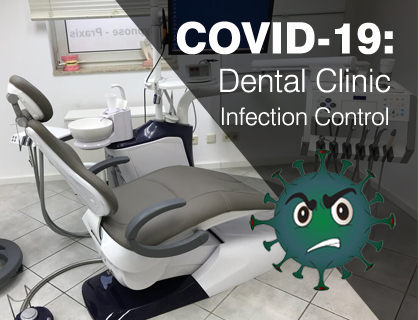
In the instance of the outbreak of COVID-19 all over the world everyone wants to ensure the protection and safety of everyone in society. But in a dental practice it has become more important to practice infection control procedures to ensure the personal protection of their patients. They should sterilize all the labs, operating instruments, hallways, bathrooms as well as the reception and waiting for areas thoroughly to provide dental services to their clients in a comfortable and safe atmosphere.
The risk of getting infected with Coronavirus can be higher in a dental office due to the handling and use of sharp instruments, close contact with other patients and exposure to body fluids, etc. So, it has become more for a dental clinic to keep its environment clean and disinfected by using the measures of dental equipment disinfection more than ever. It has been revealed through various researches that the spreading of COVID-19 can be controlled by cleaning and disinfecting the homes as well as workplaces.
In this situation it becomes necessary to know measures taken by the dental clinics for the safety of their patients. Some of the infection control procedures used by dental clinics to prevent the spreading of COVID-19 are listed here under for your information.
Social distancing and washing hands frequently are the general rules followed by almost every person these days to control the spreading of infection. But in dental practices, it has become important to follow these rules more strictly because the infection can spread here due to three reasons like:
According to a study, dental practices can protect not only themselves but their staff and patients also from getting contaminated with Coronavirus by following the tips provided here under.
Disinfection of dental equipment
Dentists and their staff should disinfect all the surfaces and dental equipment before using them for any patient by wiping them with a soft cloth soaked with alcohol. All instrument hoses and cuspidor in the dental unit should be disinfected. We recommend using a dental chair with an automatic disinfection system so that you can save more time serving your patients. TREEDENTAL also provides various types of equipment to disinfect al the dental instruments used in a dental clinic like Dental Sterilizer Autoclave, Ultraviolet Disinfection Cabinets, Dental Ultrasonic Cleaner, Dental Handpiece Washer Disinfector, Dental Instrument Disinfection Box, Bur Disinfection Box, Sterilization Pouch, and Sealing Machine, etc. (Check the product line here) To help you disinfect the dental facility and its equipment thoroughly within a few minutes.
Evaluation of patients
The first measure of infection control at the time of COVID-19 can be to evaluate every patient so that the contact of infected patients with other patients can be avoided. They should screen every patient by taking their body temperature and take adequate steps to quarantine them unless the treatment is over. It is recommended to use a contact-free thermometer to measure the body temperature of each patient. In order to identify the level of infection, they should also ask a few questions like:
After this questionnaire you can evaluate the condition of your patient on the basis of their answers and body temperature.
Ensure hygiene of your hands more strongly
Though taking care of the hygiene of your hands is expected to control infection of COVID-19 still you can reduce this risk more effectively by implementing this principle more strongly. The professionals in a dental clinic should wash hands:
Take measures for personal protection
The staff and the professionals at a dental clinic can ensure their safety from the airborne droplets of their patients by following the tips recommended here as they can help in spreading infection of Coronavirus.
Before dental procedures use a mouth rinse
The use of a mouth rinse before a dental procedure can reduce the risk of infection from COVID-19 as mouth rinse contains povidone-iodine or hydrogen peroxide as oxidative agents, which can reduce the effect of the infection from the microbes of COVID-19 found in the saliva or droplets of the patient. Oxidation can weaken the strength of COVID-19. So it will be beneficial to have a mouth rinse before a dental procedure for the personal safety of the dental professionals.
Use a dental dam or external oral suction system
The production of saliva and spray of contaminated blood can be reduced significantly while using ultrasonic and high-speed dental devices by using dental dams. These airborne particles can be reduced within the radius of one meter by 70% by using a dental dam. This dam should be used with a suction system to suck the saliva and contaminated blood regularly throughout the procedure.
They can also use a dental extraoral suction system for this purpose. This system can capture the aerosol containing droplets and spray of saliva, water, bacteria, blood, and viruses coming out of the mouth of the patient effectively. It will keep the surroundings clean along with preventing the spread of aerosol.
Use hand-pieces with no retraction
The debris and fluid can be expelled effectively from the mouth of the patient by using a high-speed dental hand-piece with a retraction valve. But it can increase the risk of cross-infection in the clinic as it can contaminate the water and air tubes used in it. So instead of using high-speed hand-pieces without anti-retraction valves, they should use high-speed hand-pieces with anti-retraction valves to minimize the backflow of the oral viruses and bacteria into the tubes used in the clinic. It will help in reducing the risk of infection of COVID-19 in the dental clinic.
Disinfect the environment of the clinic
In order to make your dental clinic better than others you should take strict measures to disinfect it thoroughly including the area used by the professionals for dental procedures as well as the waiting and reception area of the clinic. Along with cleaning the floor and surfaces of the dental clinic you should also clean appliances, chairs, handles of the doors, lifts, and desks, etc. regularly as a measure of infection control.
Proper management of medical waste
Timely disposal of medical waste like disposable equipment and clothing used is also important for infection control in a dental clinic. You should manage the medical waste of your clinic by marking on the waste bags and using them as required. The medical waste generated by treating a confirmed or suspected patient of COVID-19 should be handled with extra care as it should be termed as infectious waste.
Moreover you should clean and treat the reusable instruments and sterilize them properly before storing them as you usually do.
Though any of the infection control measures discussed in this write-up cannot prevent the spread of COVID-19 alone, still you cannot avoid them as they can help the staff and the patients in a dental practice to be in a healthy and safer environment regardless of the fear of the pandemic of COVID-19.

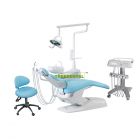

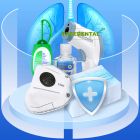

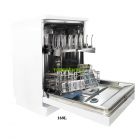
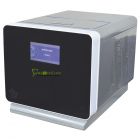
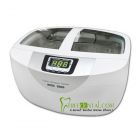



 Customers rate us 5.0/5 based on 1000+ reviews.
Customers rate us 5.0/5 based on 1000+ reviews.